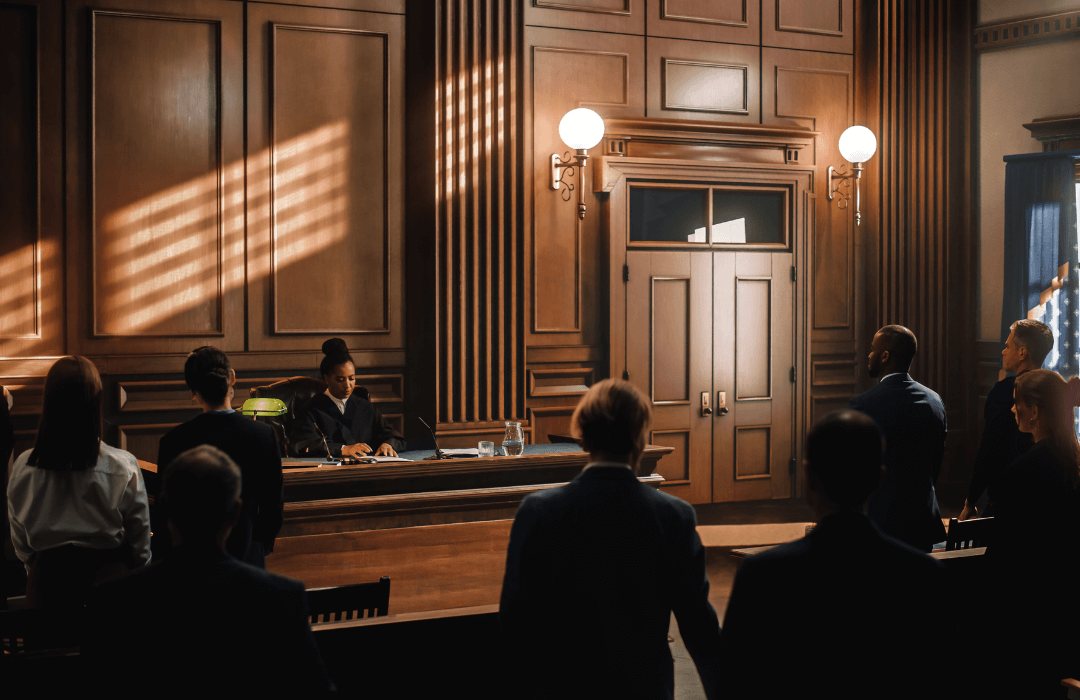What Happens at a Workers’ Comp Hearing?

If you have ever watched a law show on television, you may have seen a courtroom trial with witnesses. The lawyers ask questions, and the judge makes rulings. It can be dramatic even if you are watching at home. If you are an injured worker with a workers’ compensation case, you may find yourself in a hearing of your own someday. Luckily, we’re here to help alleviate any stress and reduce the dramatics.
Why Would I Need a Workers’ Compensation Hearing?
Oftentimes, workers’ compensation cases end in a settlement between the employee and the workers’ compensation insurance company. However, when the parties can’t resolve their dispute, a hearing might be necessary.
How Do I Prepare?
You and your attorney will spend some time together preparing for your case. It will involve reviewing the facts, your testimony, and the medical records. Ensuring you have provided your attorney with all the records is essential.
What Happens at a Workers’ Compensation Hearing?
At a workers’ compensation hearing, both sides have the opportunity to present evidence and witnesses. Like a civil trial, workers’ compensation hearings require all parties to be present before a judge and the introduction of evidence in the form of documents and witness testimony. The lawyers will also make legal arguments to the judge.
There will be a few people in the courtroom – you, your lawyer, the employer’s insurance company, their lawyer, and of course, the workers’ compensation judge. Other people may also be there including a court reporter, witnesses who will testify, a representative from your employer, and an insurance company representative.
Most hearings take a few hours, but more complicated cases may take a few days.
What Kind of Evidence Is Presented?
The type of evidence presented at a workers’ compensation hearing will vary depending on the specific facts of your case. Evidence typically includes medical records, witness testimony, and expert opinions.
Both sides may give the judge documents to review. These may include:
- Medical records
- Unpaid medical bills
- Evidence of your lost wages via pay stubs from just before your injury
- Personnel and other employment records
- Depositions and reports by expert witnesses (a report from your treating doctor), and
- Documents showing your job search if that’s relevant to your case.
There will also be live testimony given at the trial. You will usually testify at the hearing. Typically, your testimony will include:
- Your injury: you should expect questions on how the injury occurred, where it occurred, whether there were any witnesses, who you reported the injury to, and what symptoms you experienced when the injury occurred.
- Your current symptoms: you should expect questions on whether your symptoms have improved since the injury, stayed the same, or worsened. You should expect questions on whether the medical treatment you’ve had has been helpful.
- Your employment history: you should expect questions regarding your normal job duties, training and education, your wage rate, hours worked, length of employment, your attempts to return to work, and other employment-related issues.
- Your medical history: you should expect to testify not only about the medical history related to your work injury, but prior medical history and medical providers. You should expect questions as to your symptoms and the limitations in what you can do as a result of the work injury. You may also be asked about prior work injuries, prior accidents, and whether you had any symptoms prior to the work injury.
Before you testify, the judge will place you under an oath to tell the truth. Your workers’ compensation lawyer will ask you a series of questions. Then, the insurance company’s lawyer will also have the right to ask you questions. The judge may also have questions for you as well.
In addition to your testimony, other witnesses may be called to testify such as coworkers or others who witnessed your accident, the insurance company’s adjuster, and other experts. Doctors typically provide their testimony at a deposition before the hearing.

